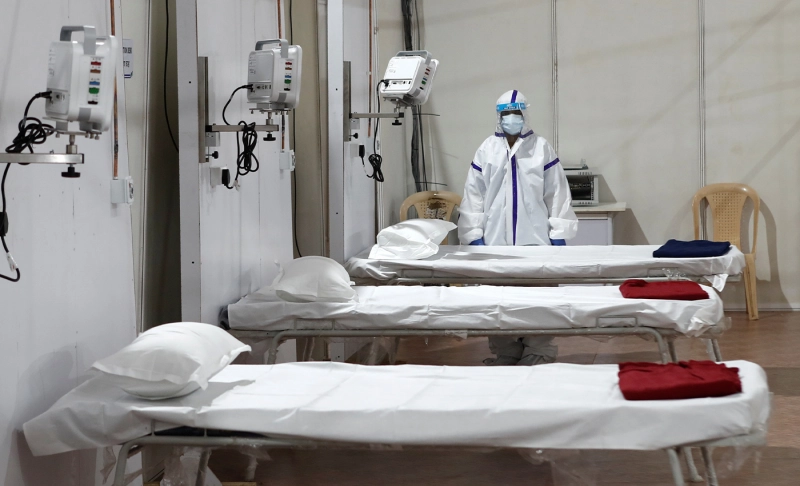By: Ankita Kulkarni
April 30 2021
The Indore district administration has set up Madhya Pradesh's largest COVID-19 care center.
Claim ID 80ecae8c
The Indore district administration has set up Madhya Pradesh's largest COVID-19 care center.India’s second-largest COVID-19 health care center, the Mata Devi Ahilya COVID Care Centre, catering to asymptomatic patients, has been established in Indore. The center will have 600 beds in the initial phase with 47 concentrator machines which could be scaled up to 6200 beds. The quarantine facility was recently launched as the COVID-19 cases in the state have risen sharply.
Not long after, a social media post claimed that RSS built the COVID-19 center in Indore with 4 oxygen plants. However, the news reports suggest otherwise. The Indore district administration has set up the facility on 45 acres of land inside Radha Swami Satsang Bhawan (RSSB), a non-profit entity. RSSB has no affiliation to any political or commercial organizations.
News18 quoted Indore collector Manish Singh as saying that the center has two in-house oxygen plants built with a cost of over two crores, pooled in through public help. According to reports published by ANI and Lokmat, many RSS workers are volunteering at the COVID-19 care center. However, credible sources confirm that RSS has no major role in setting up the COVID-19 care center at Indore.
The COVID-19 pandemic has given rise to a lot of potentially dangerous misinformation. For reliable advice on COVID-19, including symptoms, prevention, and available treatment, please refer to the World Health Organisation or your national healthcare authority.



